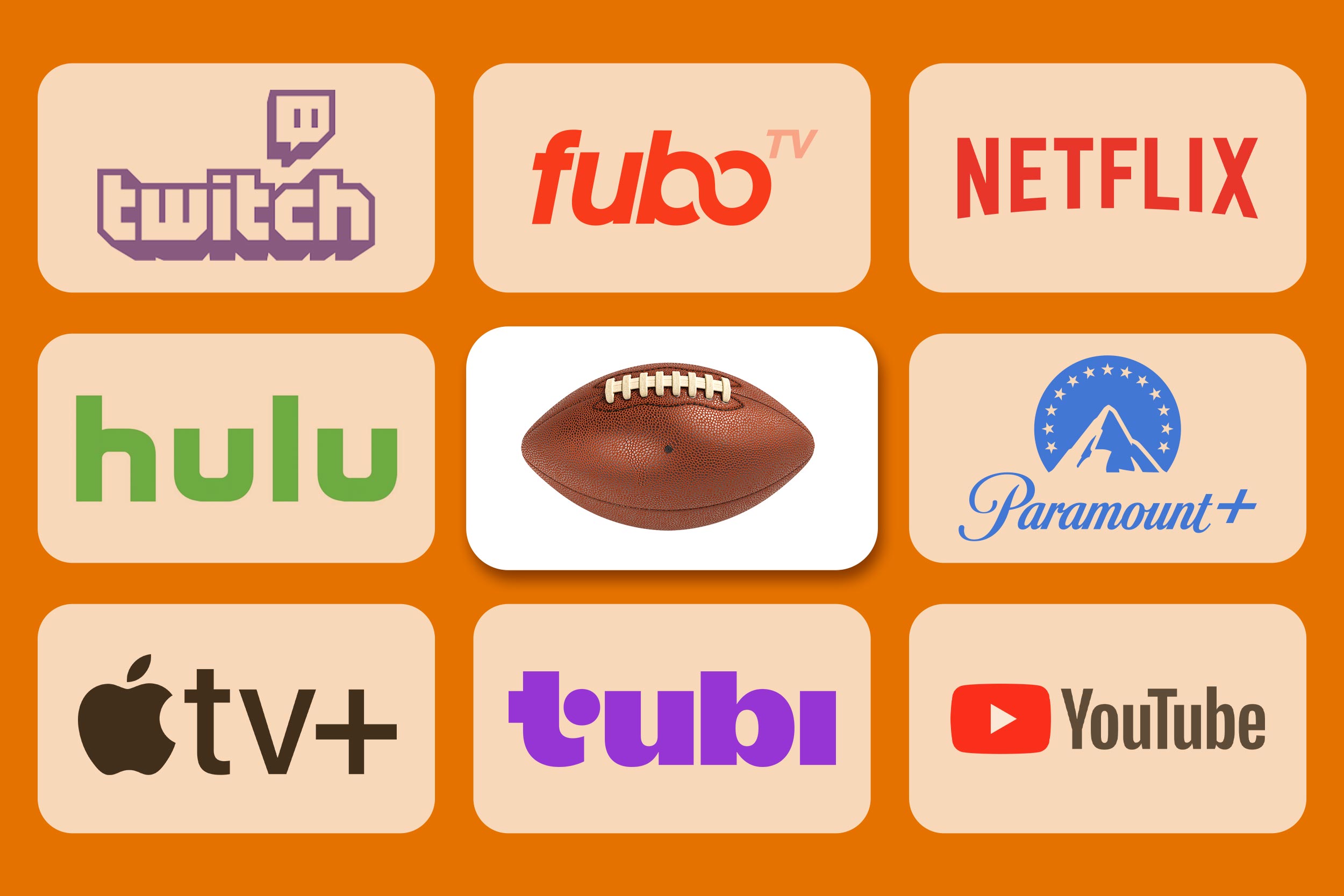
Q&A: How Long Until the Super Bowl Is a Streaming-Only Viewing Event?
By Andrew Ramspacher
The Super Bowl, loaded annually with must-see commercials and halftime performances from the biggest stars in the music industry, has only appeared on four networks – ABC, CBS, Fox and NBC – throughout its nearly six-decade history.
A recent trend, however, suggests a major change is coming to how we view the Big Game.
While this year’s edition – Super Bowl LIX between the Philadelphia Eagles and Kansas City Chiefs kicks off at 6:30 p.m. Sunday – will broadcast on Fox, it’ll also be streamed on Tubi.
Last month, streaming platform Amazon Prime Video had the exclusive rights to a playoff game between the Baltimore Ravens and Pittsburgh Steelers. Last year, another streaming platform, Peacock, exclusively aired a playoff game between the Kansas City Chiefs and Miami Dolphins.
Some regular-season NFL games, headlined by Prime’s weekly broadcasts of Thursday night matchups, have been stream-only since 2023, and Christmas Day 2024 featured a Chiefs-Steelers, Ravens-Houston Texans doubleheader on Netflix.
UVA Today checked in with media and entertainment expert Anthony Palomba, an assistant professor of business administration at the University of Virginia’s Darden School of Business, to get a sense of how far – and how soon – the NFL and its streaming partners could take this strategy.

Anthony Palomba has expertise in audience analysis, media innovation and firm competition, and entertainment science. (Photo by Stephanie Gross)
Q. Do you believe it’s inevitable the Super Bowl will, one day, be exclusively on a streaming service and not available on linear television?
A. I think we could see it happen in the next decade. It wouldn’t surprise me.
If we break down what the Super Bowl represents, it’s more than just a sporting event; it’s a cultural phenomenon, a moment for people to come together, and a gold mine for advertisers seeking maximum exposure. For the Super Bowl to shift to streaming, it would need to be hosted on a platform with widespread accessibility, such as Netflix, YouTube or Amazon.
Meanwhile, cable television is akin to a melting glacier – still present and profitable to a degree, but steadily diminishing. Signs of this realignment in television are already visible, such as Disney’s recent merger with Fubo. Disney appears to be acknowledging the finite future of ABC as a traditional broadcaster, potentially paving the way for its eventual integration into Disney+ (if it’s not sold off first). Additionally, broadcast and cable largely attract older audiences who hold less appeal for many advertisers.
Q. What can advertisers gain from games being streamed exclusively versus on linear television?
A. Streaming companies can measure consumer behavior in ways traditional broadcasts cannot. Linear broadcasts must rely on third parties, such as social media, to figure out the impact of a certain commercial. Traditionally, they relied on Nielsen for TV ratings to understand how many consumers viewed a show or a commercial.
However, if everything is under one fully integrated ecosystem, like people logging into Amazon to watch, make comments and shop, you’re able to see at which point in the stream was there an uptick in purchases of a certain product or what kinds of products were sold to which household. It can identify moments when consumer activities, such as gambling, peaked during a live event or stream.
This granular tracking enables isolation of “incremental moments” in which a consumer made a decision informed by a game play, a commercial, or some other narrative element introduced during the experience. It opens hyper-customization for different consumer segments, where highly personalized advertisements, camera shots, product recommendations, or other elements can be seamlessly introduced for consumers.
Q. From the NFL’s standpoint, what’s the biggest risk in moving the Super Bowl off linear television to stream-only?
A. The biggest risk is the potential alienation of older fans, who may be less familiar with or resistant to streaming platforms. There’s also a strong nostalgic element tied to the Super Bowl being broadcast on linear television, as generations of fans associate the event with traditional TV. Moving to streaming could serve as a symbolic end to an era, reminding viewers that traditional broadcasters are no longer the dominant force they once were. I mean, I love Al Michaels as an announcer, and it’ll be sad when he retires.
Another potential downside is the loss of shared cultural moments tied to commercials. Watching and discussing Super Bowl ads has historically been part of the event’s camaraderie, sparking water cooler conversations the following day. However, such shared cultural touchpoints are already diminishing in today’s fragmented media landscape, where attention quickly shifts to the next trending topic. The advent of streaming the Super Bowl should, to some extent, offer targeted experiences for consumers.
Q. What would be the NFL’s biggest gain?
A. The ability to segment and target consumers during the Super Bowl would be a significant gain for the NFL. Streaming platforms would allow the league to meet younger fans where they are – on Instagram, TikTok, Snapchat and other social media platforms that prioritize rapid, visually engaging content. These platforms have shaped Gen Z’s expectations for media consumption, emphasizing quick, personalized and interactive experiences.
As Gen Z begins to form families of their own, they will likely expect streaming services to emulate these dynamic, customizable experiences. For the NFL to stay relevant and appealing to this audience, it must transition to streaming to create a viewing experience that aligns with modern digital habits.
Q. The NFL has made a big push in recent years for exposure beyond the U.S. How could a stream-only Super Bowl enhance that strategy?
A. Streaming would provide the NFL with the potential for greater global reach. Platforms like Netflix, Amazon and YouTube have massive international audiences, enabling the league to expand its footprint beyond traditional markets.
This shift could not only attract new fans, but also open opportunities for targeted advertising and partnerships on a global scale. Remember, NFL games are now played in London each year, and we’ve also had NFL games played in Germany and Brazil. It makes sense to find distributors who can reach these consumers for the biggest NFL game of the season.
The University of Virginia Darden School of Business prepares responsible global leaders through unparalleled transformational learning experiences. Darden’s graduate degree programs (MBA, MSBA and Ph.D.) and Executive Education & Lifelong Learning programs offered by the Darden School Foundation set the stage for a lifetime of career advancement and impact. Darden’s top-ranked faculty, renowned for teaching excellence, inspires and shapes modern business leadership worldwide through research, thought leadership and business publishing. Darden has Grounds in Charlottesville, Virginia, and the Washington, D.C., area and a global community that includes 18,000 alumni in 90 countries. Darden was established in 1955 at the University of Virginia, a top public university founded by Thomas Jefferson in 1819 in Charlottesville, Virginia.
Press Contact
Molly Mitchell
Senior Associate Director, Editorial and Media Relations
Darden School of Business
University of Virginia
MitchellM@darden.virginia.edu




